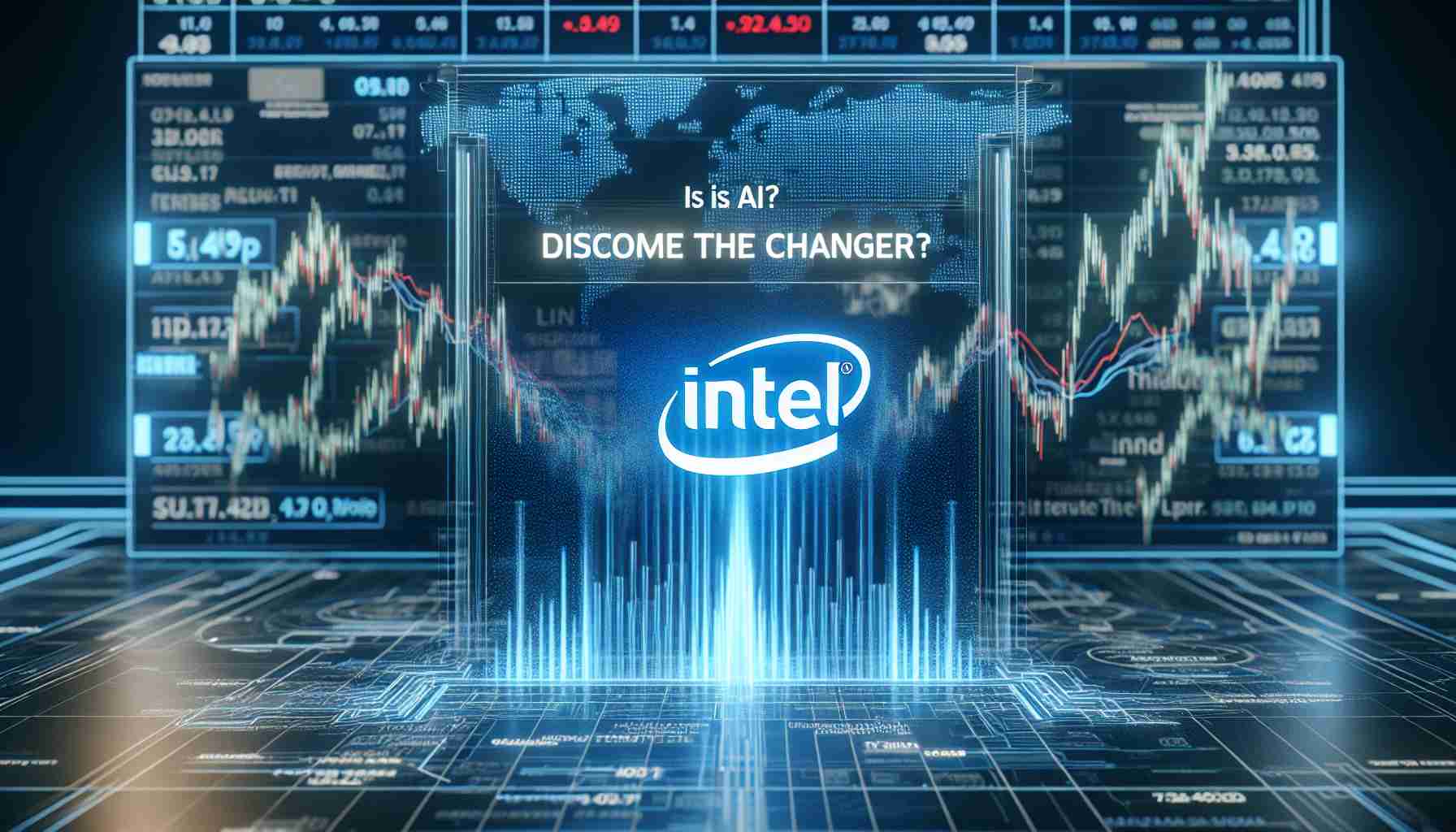- Intel is strategically focusing on AI hardware and software solutions to influence its stock price and financial growth.
- Recent AI-focused product launches by Intel are significantly impacting sectors such as autonomous driving and cloud computing.
- Global trends towards AI-centric applications could substantially enhance Intel’s revenue streams.
- Partnerships with AI developers and strategic acquisitions are pivotal to Intel’s AI initiatives.
- Competition from leading tech companies investing in AI remains a challenge for Intel.
- Continuous innovation is essential for Intel to maintain its competitive edge in the AI sector.
- Investors are closely monitoring Intel’s capacity to leverage AI for long-term financial success.
As the world of technology unfolds new horizons, Intel Corporation, a stalwart in the semiconductor industry, finds itself at a pivotal juncture. Recent market fluctuations have highlighted the importance of understanding the factors steering Intel’s stock price (Intel 株価), especially in the context of emerging technologies like artificial intelligence (AI).
With AI breakthroughs revolutionizing industries, Intel is actively positioning itself to be at the forefront. Its investments in AI hardware and software solutions are poised to redefine its financial trajectory. The company’s recent AI-focused product launches are game changers, impacting sectors from autonomous driving to cloud computing.
The global shift toward AI-centric applications is expected to create a tangible impact on Intel’s revenue streams. Notably, Intel’s partnership with leading AI developers and its strategic acquisitions are significant. By integrating AI as a core component of its processor lineup, Intel aims to bolster processing power and efficiency, appealing to a broader audience of developers and corporations alike.
However, challenges remain. Competition from other tech giants who are also heavily investing in AI capabilities poses a potential threat. Intel’s ability to innovate continually and maintain a competitive edge will be crucial.
As we look to the future, investors are keenly observing Intel, assessing whether the company can leverage AI to drive long-term financial growth and redefine its market position. The unfolding narrative promises to be a fascinating journey with AI as a central character.
Intel’s AI Revolution: Can It Sustain Market Leadership?
Key Trends and Insights in Intel’s AI Strategy
As Intel navigates the evolving landscape of the semiconductor industry, its emphasis on AI technologies becomes increasingly crucial. Below, we delve into the aspects shaping Intel’s course, focusing on AI-driven innovations and market dynamics.
AI Hardware Innovations
Intel’s recent launches in AI hardware are pivotal. The introduction of the Habana Gaudi2 AI processor, designed for data centers, illustrates Intel’s drive to enhance deep learning workloads. This development acts as a catalyst to improve performance in both AI training and inference tasks, distinguishing Intel in a competitive market landscape.
Strategic Partnerships and Acquisitions
Intel’s collaborations with prominent AI developers play an integral role. These partnerships, coupled with strategic acquisitions like the acquisition of AI chipmaker Nervana Systems, fortify Intel’s position. By assimilating cutting-edge technologies, Intel aims to push the envelope further in AI advancements.
Sustainability and AI Integration
Intel’s commitment to environmental sustainability is mirrored in its AI strategies. By developing energy-efficient processors, Intel seeks to reduce the carbon footprint of AI operations. This approach aligns with the growing demand for sustainable AI solutions, enhancing Intel’s appeal to eco-conscious enterprises and consumers.
Top 3 Questions about Intel’s AI Future
1. How is Intel’s focus on AI affecting its stock price?
Intel’s AI initiatives have injected a dose of optimism among investors. As AI continues to transform numerous sectors, Intel’s strategic moves—such as developing high-performance AI processors and forming critical partnerships—have the potential to positively influence its stock, driving trust and investment interest.
2. What are the potential challenges Intel faces in AI innovation?
Despite being a key player in AI hardware, Intel faces fierce competition from major tech companies like NVIDIA and AMD, which are also investing heavily in AI. Maintaining technological superiority and cost-competitiveness are ongoing challenges that Intel must navigate to sustain its market position.
3. Can Intel achieve long-term financial growth through AI?
Yes, with comprehensive strategies emphasizing AI integration across its processor lineup and bolstered by synergistic partnerships, Intel is well-placed to harness AI for sustained financial growth. The ongoing global shift towards AI-centric applications positions Intel to capture emerging revenue streams effectively.
Suggested Related Links
– Intel
These insights suggest a transformative era for Intel, compelling investors and industry observers to closely watch how its AI ventures unfold in a highly competitive environment.



















